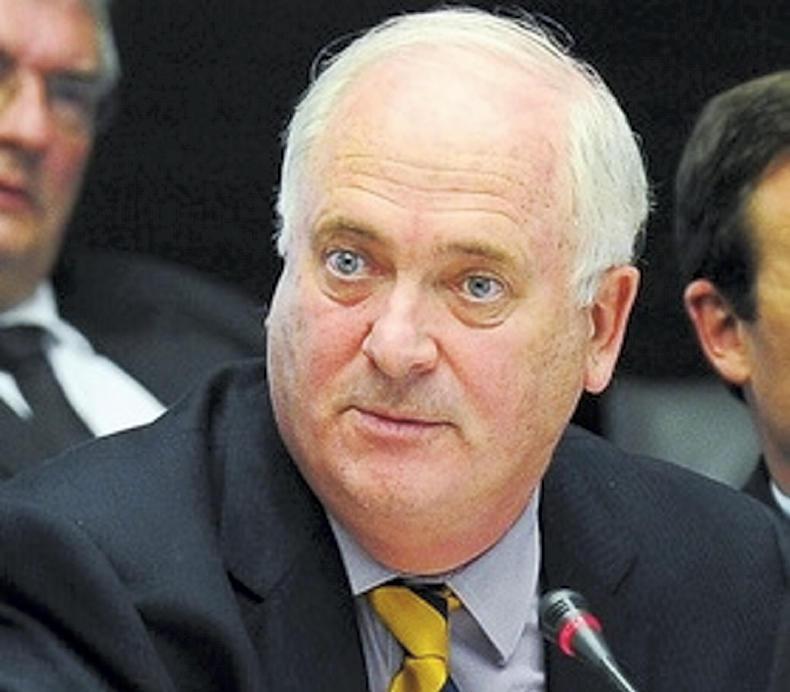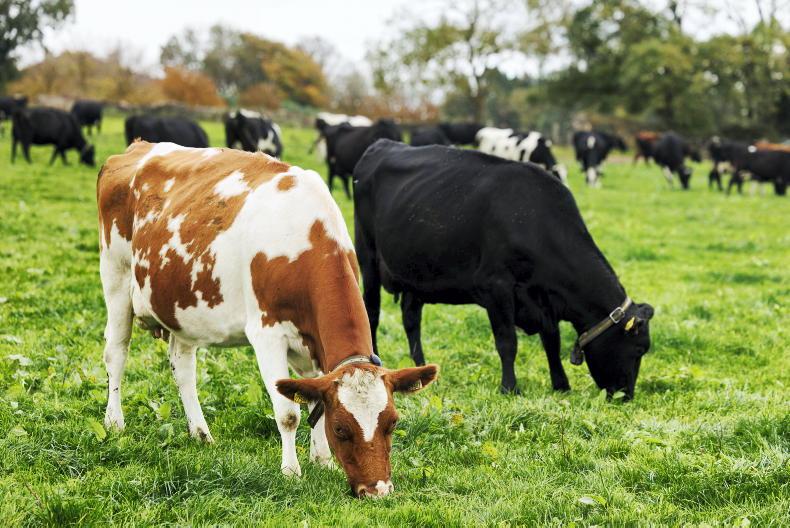Heads of government of the 27 EU member states will meet this week in an attempt to agree on the means whereby the EU and particularly the eurozone, could cope with the immediate financial stress caused by COVID-19 as well as providing support for eventual economic recovery.
The debate leading up to this digital EU summit has become bitter and destructive and has been driven by the electoral politics at national level.
The EU is a convenient blame-taker for governments
The EU, with a small budget and no tax-raising power, has become the focus for unrealisable expectations in public opinion.
The EU is a convenient blame-taker for governments that do not take the trouble to explain the reality of mutual interdependence to their own citizens.
The issue is urgent. A sudden increase in the interest rate Italy or Spain had to pay to borrow could lead to a crisis for the euro. That could destroy the single market, from which the wealthier parts of the EU benefit disproportionately (although their inhabitants are blissfully unaware of this).
This is the so-called coronabond. Ireland and France supported this idea
Italy and Spain, the states worst hit by COVID-19 at this stage, want the EU to create a common mutualised debt instrument, issued by an EU institution, that they could use to provide long-term financing for themselves and their people. This is the so-called coronabond. Ireland and France supported this idea. Italy and Spain reject the alternative they are being offered, loans from the European Stability Mechanism (ESM), because they fear it might impose reform conditions in return for the loans and say (rightly) that COVID-19 has nothing to do with whether structural reforms were, or were not, adequate in the past. They point out that the EU gave them little help with the refugee crisis.
Apparently voters in these countries feel only limited solidarity with their fellow Europeans
On the other side, Netherlands, Finland and Austria refuse to agree to this proposal, saying that mutualising debt would promote irresponsibility and would be rejected by their voters. Apparently voters in these countries feel only limited solidarity with their fellow Europeans in Italy and Spain and fail to see how much the EU single market is worth to them. Germany and France are trying to find a way forward and I expect Angela Merkel and Emmanuel Macron will be the people on whom European Council president Charles Michel will rely to craft a forward-looking compromise. Ireland will want to ensure action is not at the expense of agricultural support.
If the ECB or the ESM went out of business, the resulting debt burden would fall back on the member states
The Dutch and their friends say they object to “mutualised debt”, but the bond buying by the ECB and loans from the ESM, which they already accept, already involve the indirect mutualisation of liabilities between EU states. If the ECB or the ESM went out of business, the resulting debt burden would fall back on the member states. So the principle of no mutualisation of debt is not that sacrosanct in practice.
Eurobonds
On the other hand, the Italians object to taking loans from the ESM and want Eurobonds instead. This, they say, is because they object in principle to the “conditionality” that they say the ESM would impose. They think the ESM would be like the Troika, setting conditions for loans that would be politically difficult. They seem to object to “conditionality” in principle. In fact the conditionality will be quite modest and the reality is that Eurobonds would involve conditionality as well!
Who should get priority?
The head of the ESM, Klaus Regling, has said that a scheme of Eurobonds would take 18 months to set up, precisely because legal conditions and instruments would have to be put in place. Indeed, it is not clear yet how Eurobonds would be disbursed, to whom, and for what precise purpose. Who should get priority?
The poorest countries, or the ones worst hit by COVID-19? The countries reliant on sectors that will recover most slowly, such as tourism, or those worst hit at the moment?All that work will take time. When Italy considers the matter more deeply, it may find that ESM loans, which already exist, could come on stream much more quickly.
While this stalemate continues, the level playing field within the EU single market is being damaged
The important thing now is a positive signal, a sense that someone is in charge in the EU. While this stalemate continues, the level playing field within the EU single market is being damaged. Until a couple of weeks ago, the level playing field was a sacred principle of the EU.
Maintaining a “level playing field” is the key goal of the EU’s negotiating strategy on Brexit and on whether to allow UK goods and services into the EU after 1 January. The EU does not want the UK to be able to give state aids that would allow UK firms an advantage over EU firms who do not get the same aid under EU rules.
Some of these firms will be using that liquidity to compete directly with Italian and Spanish firms
But, in response to COVID-19, Germany is offering €465bn of liquidity to support German companies. Some of these firms will be using that liquidity to compete directly with Italian and Spanish firms, who will not get similar support, because their governments cannot afford it. This German liquidity support for German firms is injecting funds into the wider European economy. That will do good. But it is also introducing a new element of unfair competition into the European Single Market.
To give the world confidence that the EU is able to function effectively, a strong signal of EU support for the countries worst hit by COVID-19, must come from Thursday’s summit.
Heads of government of the 27 EU member states will meet this week in an attempt to agree on the means whereby the EU and particularly the eurozone, could cope with the immediate financial stress caused by COVID-19 as well as providing support for eventual economic recovery.
The debate leading up to this digital EU summit has become bitter and destructive and has been driven by the electoral politics at national level.
The EU is a convenient blame-taker for governments
The EU, with a small budget and no tax-raising power, has become the focus for unrealisable expectations in public opinion.
The EU is a convenient blame-taker for governments that do not take the trouble to explain the reality of mutual interdependence to their own citizens.
The issue is urgent. A sudden increase in the interest rate Italy or Spain had to pay to borrow could lead to a crisis for the euro. That could destroy the single market, from which the wealthier parts of the EU benefit disproportionately (although their inhabitants are blissfully unaware of this).
This is the so-called coronabond. Ireland and France supported this idea
Italy and Spain, the states worst hit by COVID-19 at this stage, want the EU to create a common mutualised debt instrument, issued by an EU institution, that they could use to provide long-term financing for themselves and their people. This is the so-called coronabond. Ireland and France supported this idea. Italy and Spain reject the alternative they are being offered, loans from the European Stability Mechanism (ESM), because they fear it might impose reform conditions in return for the loans and say (rightly) that COVID-19 has nothing to do with whether structural reforms were, or were not, adequate in the past. They point out that the EU gave them little help with the refugee crisis.
Apparently voters in these countries feel only limited solidarity with their fellow Europeans
On the other side, Netherlands, Finland and Austria refuse to agree to this proposal, saying that mutualising debt would promote irresponsibility and would be rejected by their voters. Apparently voters in these countries feel only limited solidarity with their fellow Europeans in Italy and Spain and fail to see how much the EU single market is worth to them. Germany and France are trying to find a way forward and I expect Angela Merkel and Emmanuel Macron will be the people on whom European Council president Charles Michel will rely to craft a forward-looking compromise. Ireland will want to ensure action is not at the expense of agricultural support.
If the ECB or the ESM went out of business, the resulting debt burden would fall back on the member states
The Dutch and their friends say they object to “mutualised debt”, but the bond buying by the ECB and loans from the ESM, which they already accept, already involve the indirect mutualisation of liabilities between EU states. If the ECB or the ESM went out of business, the resulting debt burden would fall back on the member states. So the principle of no mutualisation of debt is not that sacrosanct in practice.
Eurobonds
On the other hand, the Italians object to taking loans from the ESM and want Eurobonds instead. This, they say, is because they object in principle to the “conditionality” that they say the ESM would impose. They think the ESM would be like the Troika, setting conditions for loans that would be politically difficult. They seem to object to “conditionality” in principle. In fact the conditionality will be quite modest and the reality is that Eurobonds would involve conditionality as well!
Who should get priority?
The head of the ESM, Klaus Regling, has said that a scheme of Eurobonds would take 18 months to set up, precisely because legal conditions and instruments would have to be put in place. Indeed, it is not clear yet how Eurobonds would be disbursed, to whom, and for what precise purpose. Who should get priority?
The poorest countries, or the ones worst hit by COVID-19? The countries reliant on sectors that will recover most slowly, such as tourism, or those worst hit at the moment?All that work will take time. When Italy considers the matter more deeply, it may find that ESM loans, which already exist, could come on stream much more quickly.
While this stalemate continues, the level playing field within the EU single market is being damaged
The important thing now is a positive signal, a sense that someone is in charge in the EU. While this stalemate continues, the level playing field within the EU single market is being damaged. Until a couple of weeks ago, the level playing field was a sacred principle of the EU.
Maintaining a “level playing field” is the key goal of the EU’s negotiating strategy on Brexit and on whether to allow UK goods and services into the EU after 1 January. The EU does not want the UK to be able to give state aids that would allow UK firms an advantage over EU firms who do not get the same aid under EU rules.
Some of these firms will be using that liquidity to compete directly with Italian and Spanish firms
But, in response to COVID-19, Germany is offering €465bn of liquidity to support German companies. Some of these firms will be using that liquidity to compete directly with Italian and Spanish firms, who will not get similar support, because their governments cannot afford it. This German liquidity support for German firms is injecting funds into the wider European economy. That will do good. But it is also introducing a new element of unfair competition into the European Single Market.
To give the world confidence that the EU is able to function effectively, a strong signal of EU support for the countries worst hit by COVID-19, must come from Thursday’s summit.









SHARING OPTIONS